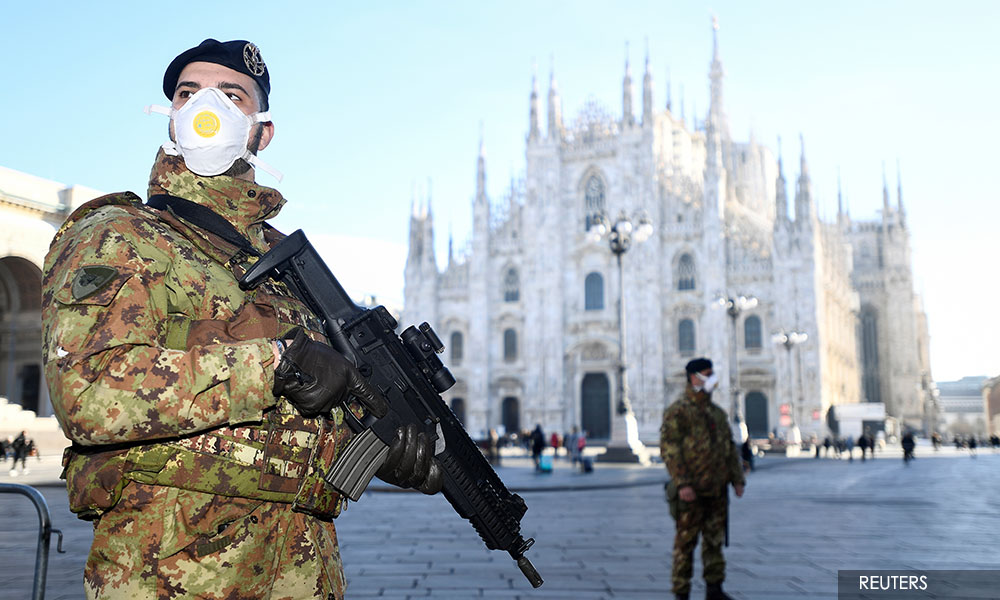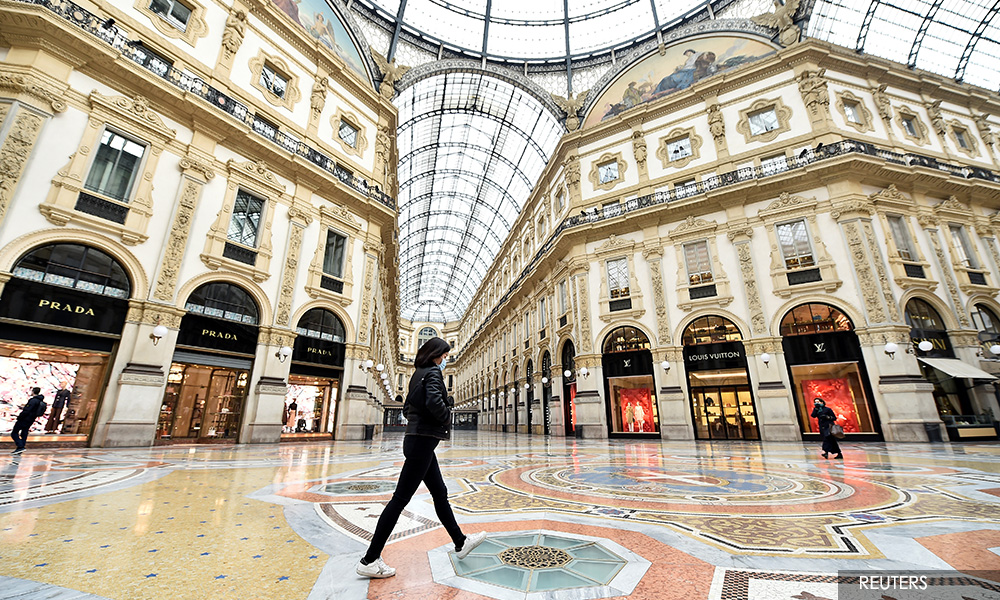Italy’s death toll from the coronavirus epidemic shot past 1,000 on Thursday as the economic impact worsened, with much of the country at a standstill and the Milan bourse posting its largest-ever one-day fall.
Looking to halt the spread of the disease, the government introduced yet more restrictions on Italians, ordering the blanket, nationwide closure of restaurants, bars and almost all shops except for food stores and chemists.
Most Italians were stoical in the face of the unprecedented disruption. “The government is doing its best, we’re in a war against an invisible enemy,” said Rome delicatessen shop owner Roberto Castroni.
Highlighting the challenge facing Italy, the worst-affected country in Europe, the daily death toll jumped by 189 to 1,016.
Confirmed cases rose to 15,113 from a previous 12,462, the biggest daily rise in absolute terms since the contagion came to light on Feb 21 in the wealthy northern region of Lombardy.

In an ever-escalating series of measures to halt the spread, Rome’s Catholic churches were ordered closed on Thursday — an unprecedented move in modern times that will apply to more than 900 parochial and historic churches in the Italian capital.
History was also made in the Milan bourse, which fell 17% for its worst single-day loss ever, underperforming a generally disastrous global market, as investors fretted over the huge, long-term cost of the coronavirus lockdown.
Austrian border
The outbreak has turned Italy into an undesirable country, with many neighbours severing transport links, leading to the cancellation of thousands of flights and the closure of some airports.
Rome demanded that Austria lift “unjustified” controls at their shared border by Thursday evening after spot health checks on truck drivers caused huge tailbacks at the Brenner Pass - a vital Alpine road link.
“The block on Italian goods vehicles to northern Europe is causing incalculable damage to our exports and to European trade,” business lobby Confindustria said in a statement.

The streets of major Italian cities were largely empty on Thursday with most people heeding a plea by Prime Minister Giuseppe Conte to stay at home.
Under the government’s emergency decree all non-essential travel is banned and people have to carry around forms that justify their reason for being on the streets.
The interior ministry said police had booked some 2,162 people during the day for violating the order. Seven foreigners were arrested in Rome after being caught playing cards around a table in the open air, Ansa news agency said.
Those found guilty of infringing the rules face up to three months in prison and a fine of up to 206 euros (US$231). Anyone who has coronavirus and is caught breaking the obligatory 2-week quarantine order faces between one and 12 years in jail.
So far, Italians have been supportive of the clampdown, with one poll showing more than 80% in favour of the government’s decision.
“I am convinced these measures are right and will reduce the length of this epidemic,” said Federica Bravi, out shopping for essentials in Rome. “So at this time, the more sacrifices we make the more likely it will be that we contain this problem.”
- Reuters

